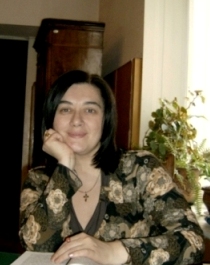The Theory of Liminality.
The Problem of Anthropology and Contemporary
Literary Criticism
Summary
Liminality is one of the most important categories of anthropology and modern study of culture and literature. The term of liminality was introduced in anthropological science by Arnold Van Genep to describe rituals associated with seasonal and individual communal changes. Liminality means transition from one stage of life to another.
The terminological and conceptual transposition of liminality from the sphere of anthropology to the sphere of literary studies belongs to Victor Terner. It’s appeared that Liminality is a very important definition for understanding not only the problem of anthropological transformations, but the problem of general transformations in culture and literature as well. The main aim and function of liminality in literature is the creation of subjective “Alternative” as the valuable opposition to the objective reality. This function of literature in different ways was mentioned in Aristotle’s “Poetics”, F. Sydney’s “The Defense of Poetry” and in the fundamental works of other philosophers and literary critics.
Rites of literary transformations are reachable through special forms of artistic time and space, invented and developed by the author. The liminal state is a place of special, mostly sacred time and space, set apart and separated. The mythic journey and the corresponding rites usually rely on the symbolism of death and birth, fraught with conflict and often cosmic score. All rites of passage are the passages of death and rebirth leading participants into another, alternative form of the existence. This complicated subjective structure of time-space transition, where one can clearly observe the transformation of the protagonist from the estate reality towards the alternative existence, might be illuminated within the frame of different literary genres.
Though the study of literary genre in the context of liminality is one of the serious contemporary methodological technologies of literary studies.

